Seeking a balance between competing interests of the EU’s biggest economy, the document overhauls Germany’s stance toward China as a “partner, competitor and systemic rival”.
“Our aim is not to decouple (from Beijing). But we want to reduce critical dependencies in future,” Chancellor Olaf Scholz tweeted, saying Berlin had “reacted to a China that has changed and become more assertive”.
The 64-page blueprint, which the government said was embedded in the European Union’s approach to China, aimed to be “realistic but not naive”, Foreign Minister Annalena Baerbock said.
The document is the product of months of wrangling within the German government over its strategy toward China.
While Baerbock of the Greens has pushed for a more hawkish line and a greater emphasis on human rights, Scholz, a Social Democrat, has backed a more trade-friendly stance.
The new China policy marks a finely calibrated balance of the two within the ruling coalition, the product of what Baerbock called “finding compromises… the lifeblood of democracies”.
The strategy paper noted that “whereas China’s dependencies on Europe are constantly declining, Germany’s dependencies on China have taken on greater significance in recent years”.
The government said it did not intend “to impede China’s economic progress and development”.
“At the same time, de-risking is urgently needed,” it said.
READ ALSO: Germany takes aim at China in first national security strategy
Berlin “is observing with concern how China is endeavouring to influence the international order in line with the interests of its single-party system and thus to relativise the foundations of the rules-based international order, such as the status of human rights”.
However Germany also highlighted potential for greater cooperation, noting for example that “it will not be possible to overcome the climate crisis without China”.
‘Biggest threat’
Burned by its reliance on Russian gas and hurt by supply chain disruptions during the pandemic, Germany has been intensifying efforts to diversify away from China.
In its first national security strategy unveiled last month, Berlin accused China of acting against German interests, putting international security “under increasing pressure” and disregarding human rights.
A report by Germany’s intelligence agency also cited China as the “biggest threat in relation to economic and scientific espionage and foreign direct investments in Germany”.
The harder line has alarmed Beijing, but also sparked fears in German industry which has grown increasingly dependent on China.
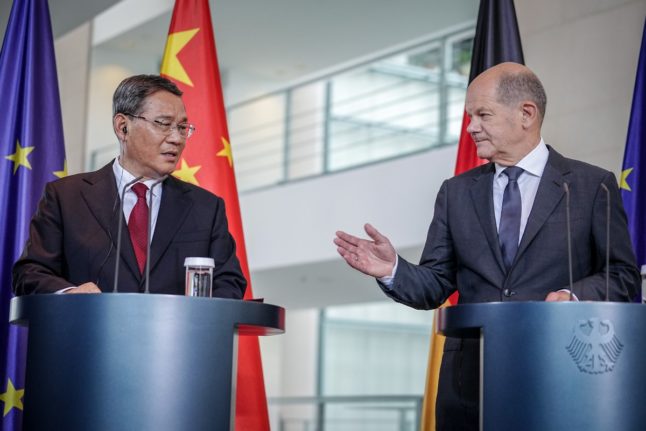
Corporate giants such as Volkswagen and Siemens have in recent months outlined growth strategies that rely heavily on the Chinese market.
Scholz has stressed that Germany “doesn’t want decoupling, we want de-risking”.
But he has underlined Berlin’s move to diversify trading partners, saying that Germany is “committed to actively broadening our economic relations with Asia and beyond”.
After the United States toughened up its economic policies against China, Beijing has feared its biggest partner in the EU could be headed in the same direction.
Chinese officials have suggested the seemingly benign talk of ‘de-risking’ masks a plan to instead progressively detach Germany from the Asian economy.
READ ALSO: Why China remains Germany’s largest trade partner
Li Qiang, visiting Germany last month on his first trip abroad since he was named China’s prime minister, also underlined the emphasis Beijing places on improving relations with the EU as criticism from the bloc grows louder.
But he warned Berlin against “using de-risking in name to carry out decoupling” and demanded a “level playing field” for Chinese companies.
The visit came in for strong criticism after Scholz acquiesced to a Chinese request not to allow journalists to ask questions at a joint press conference — seen in Berlin as a willingness to cede values in return for access.
Meanwhile the European Commission has hardened its stance toward Beijing, saying last month that Chinese telecoms giants Huawei and ZTE posed a risk to the bloc’s security and that it would stop using services that relied on the companies.
By Deborah Cole

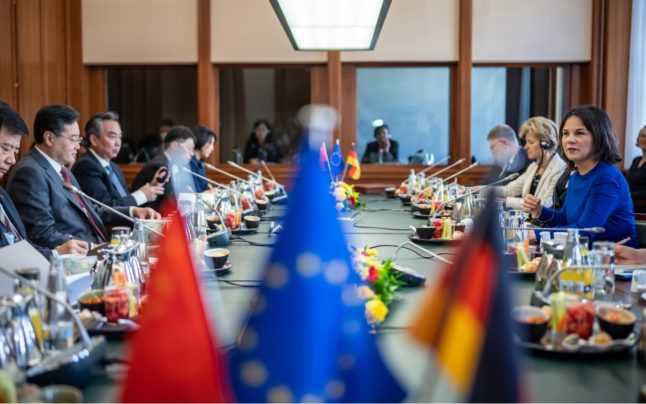
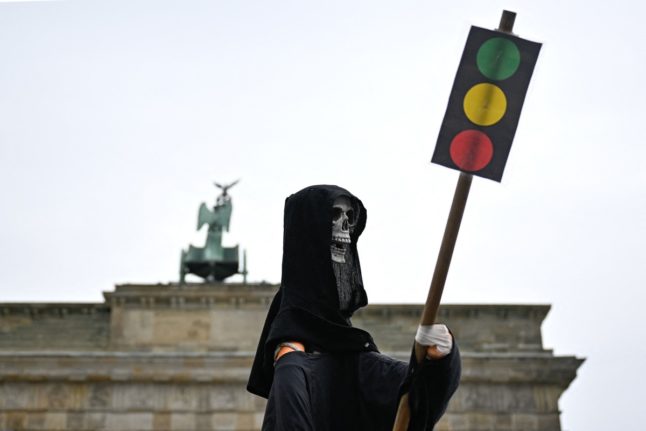
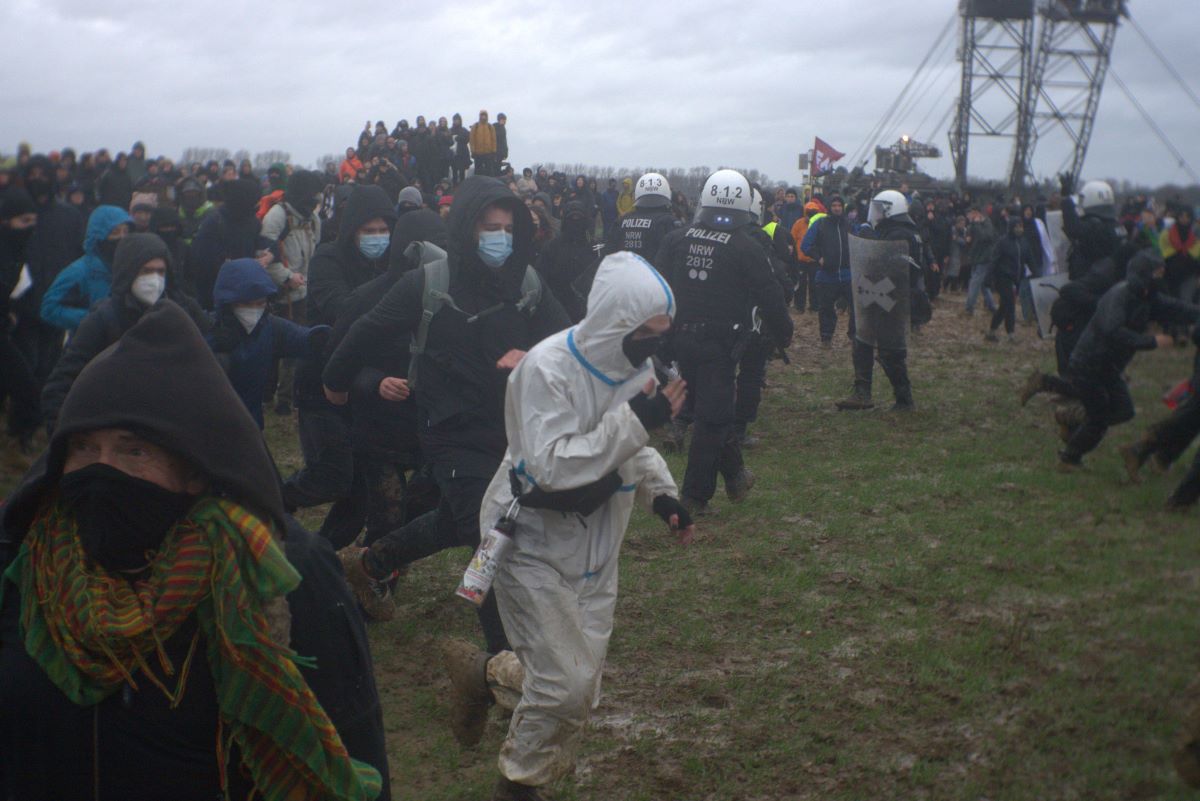
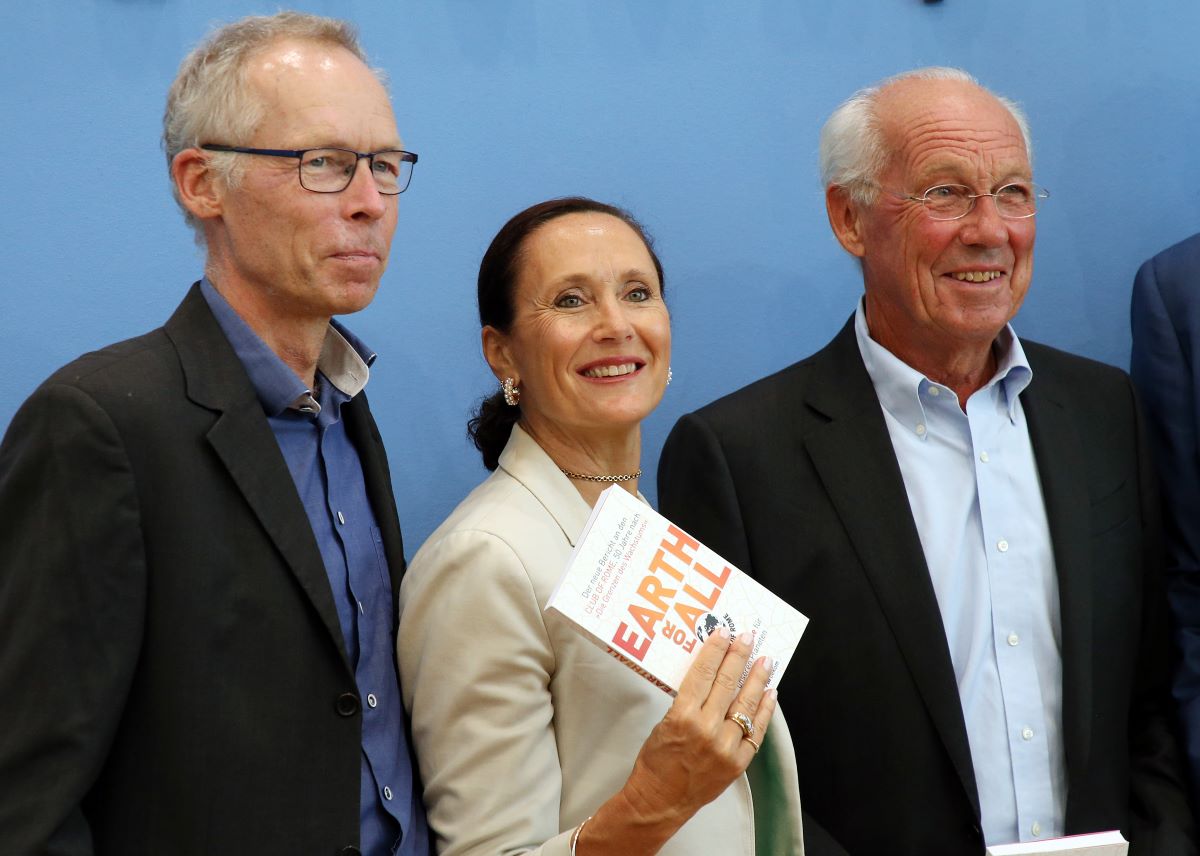
 Please whitelist us to continue reading.
Please whitelist us to continue reading.
Member comments